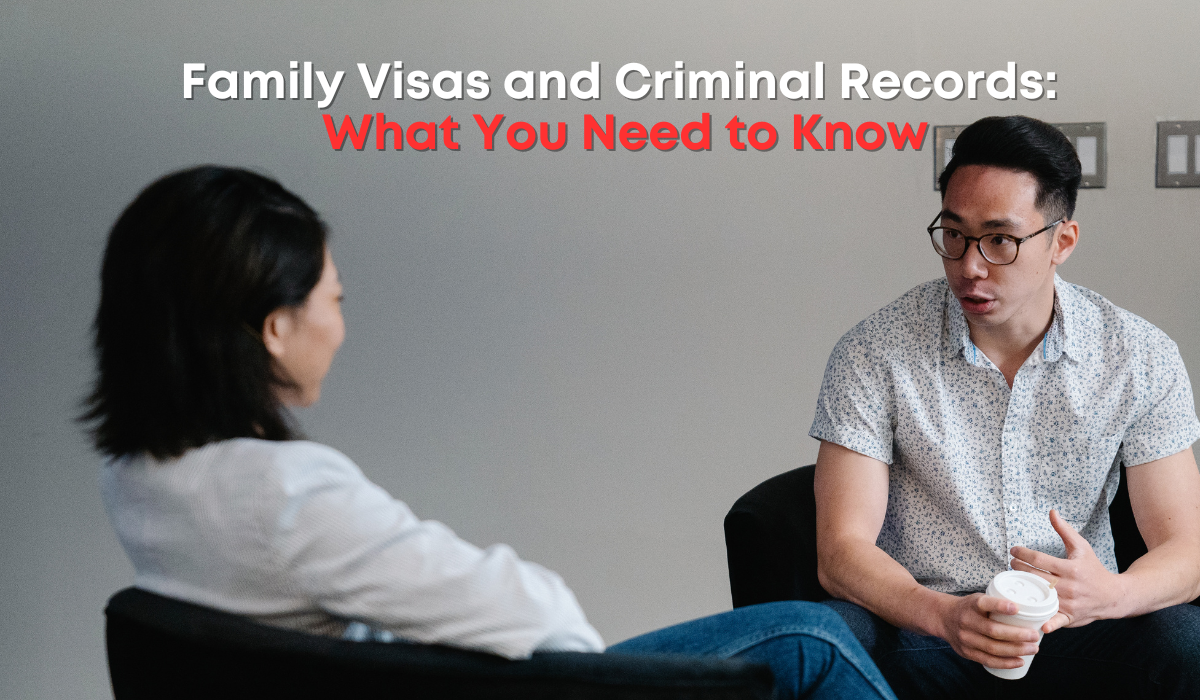Family Visa vs. Non-Family Visa Applications: Key Differences
The immigration rules treat Family Visa applications differently from other visa types. For example, the rules under Appendix FM—covering visas such as Spouse Visas and Unmarried Partner Visas—are notably more flexible when considering criminal convictions. However, for Skilled Worker Visas, Innovator Founder Visas, and other non-Family Visas, the rules under Part 9 of the immigration rules impose stricter standards.
Mandatory Refusal for Non-Family Visas
Your visa application will be automatically refused if:
- You have been convicted of an offence in the UK or overseas and received a custodial sentence of 12 months or longer.
- You are considered a persistent offender with a disregard for the law.
- The offence you were convicted of caused serious harm.
Discretionary Refusal for Non-Family Visas
In some cases, discretion may be exercised, but this depends on the details of your conviction:
- If you received a custodial sentence of less than 12 months.
- If you received a non-custodial sentence or an out-of-court disposal.
Visitor Visa Applications: A Unique Landscape
Visitor Visa applications are governed by their own set of rules. Your application will be refused if:
- You received a custodial sentence of less than 12 months and fewer than 12 months have elapsed since the end of your sentence.
- You received a non-custodial sentence or an out-of-court disposal and fewer than 12 months have passed since the date of conviction.
Family Visas: A More Lenient Approach
For Family Visas, such as Spouse and Unmarried Partner Visas, the rules under Appendix FM allow for more leniency. Mandatory refusal applies if:
- You were convicted and imprisoned for at least four years.
- You were convicted and imprisoned for between 12 months and four years unless 10 years have passed since the end of your sentence.
- You were convicted and imprisoned for fewer than 12 months unless five years have passed since the end of your sentence.
Discretionary Refusal and “Exceptional Circumstances”
Even if your Family Visa application falls within these refusal categories, you may still secure your visa if exceptional circumstances apply. This requires a robust argument demonstrating how refusal would breach your human rights or disproportionately interfere with your family life. Factors to consider include:
- How refusal impacts your right to respect for family life.
- Whether the refusal is necessary for public safety, economic well-being, or the prevention of crime.
- Whether the refusal is proportionate to the public goal.
The Perils of Non-Disclosure
Applicants may be tempted to omit a criminal conviction for various reasons, such as believing it is spent or irrelevant under UK law. However, non-disclosure can lead to accusations of dishonesty and automatic refusal. It is crucial to disclose:
- All convictions, including spent ones and those under appeal.
- Outstanding arrests and pending trials.
- Offences that may not be considered crimes in the UK.
Why Legal Expertise Matters
Applying for a visa with a criminal conviction is fraught with legal and emotional challenges. The stakes are high, particularly for Family Visa applicants, where the implications of refusal can sever family ties. Specialist Spouse Visa Solicitors and Immigration Lawyers can:
- Clarify the impact of your conviction on your specific visa application.
- Build compelling arguments for discretion to be exercised in your favour.
- Ensure your application is thorough, transparent, and supported by strong evidence.
Final Takes: Moving Forward with Confidence
The UK’s immigration rules surrounding criminal convictions are a complex labyrinth. However, with expert legal guidance, applicants can navigate this terrain successfully. Whether you need advice on disclosure, discretionary grounds, or building a case for exceptional circumstances, the right legal support can transform your prospects.
At GigaLegal Solicitors, our team is renowned for tackling challenging visa cases, including those involving criminal convictions. Recognized in the 2025 Legal 500 for our expertise in immigration and human rights applications, we offer bespoke advice and representation to help you secure the outcome you deserve.
Get in touch: For a comprehensive understanding of your options or queries on UK immigration matters, contact GigaLegal Solicitors at 02074067654 or click here to book a no-obligation consultation with an immigration expert.


